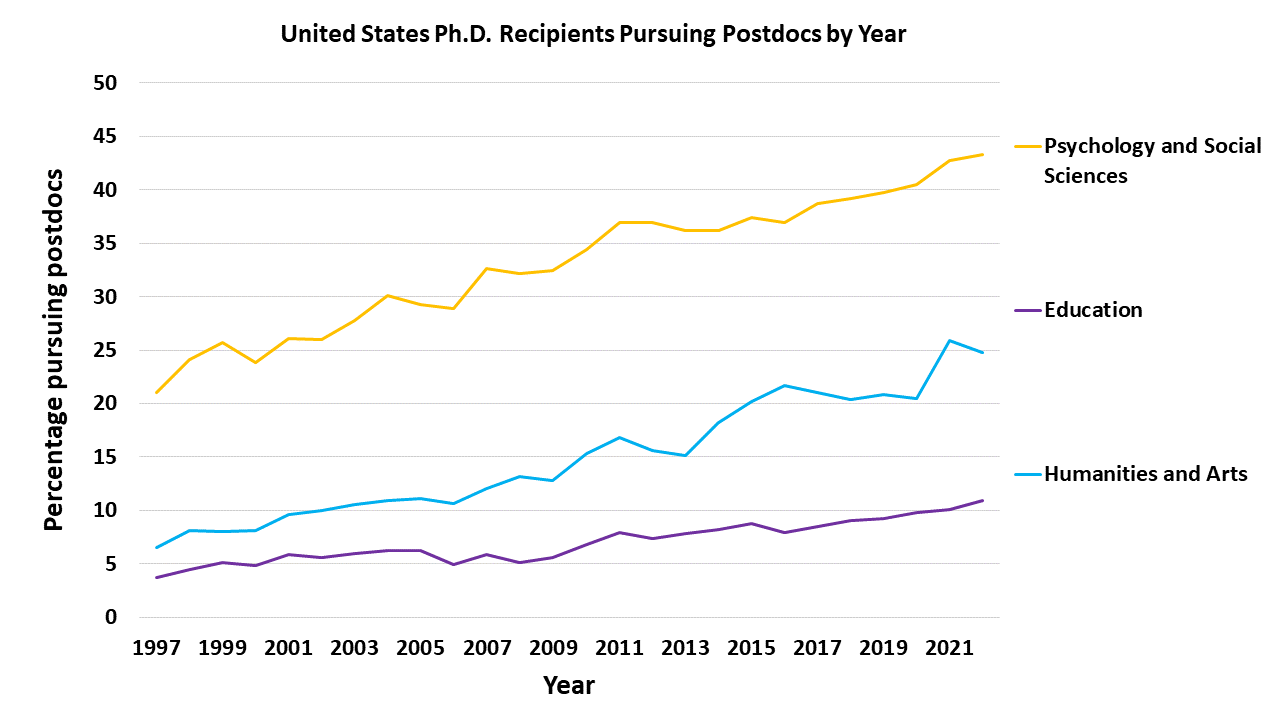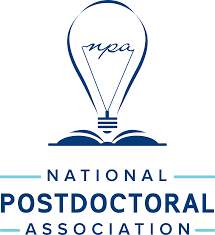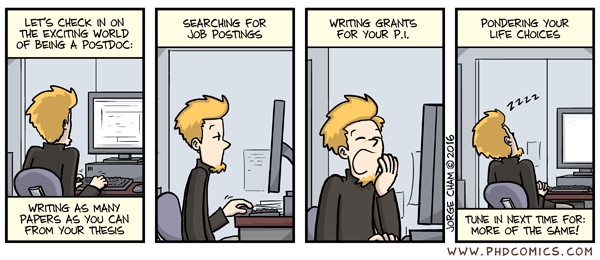1. Find job advertisements for career positions that are of interest. Do they require postdoc experience? Is it a preferred criterion? If so, then you should probably consider a postdoc.
2. Seek advice from your network and engage in informational interviews with professionals in positions similar to what you want to obtain to determine if postdoc experience is necessary to get the jobs they have.
- The next online Succeeding as a Postdoc course begins March 18, 2024, and those interested engaging with a learning community to discuss the online content can register to join a community (or PALS) here.
- For those searching and interviewing for postdoctoral positions and navigating the end of their Ph.D., I highly recommend the online course "The Strategic Postdoc" available from iBiology.



























 RSS Feed
RSS Feed